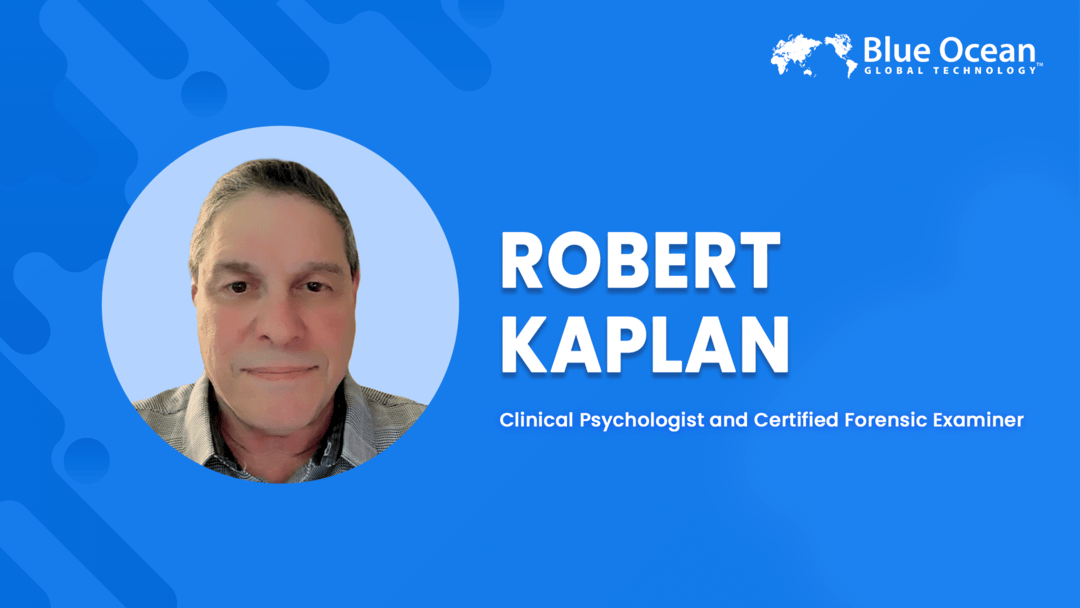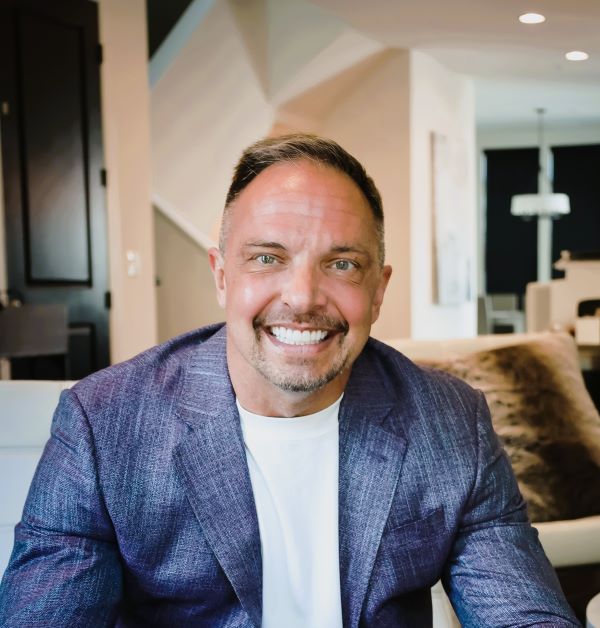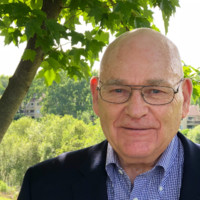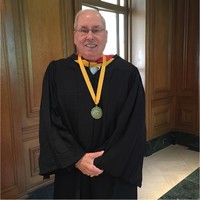About Robert Kaplan
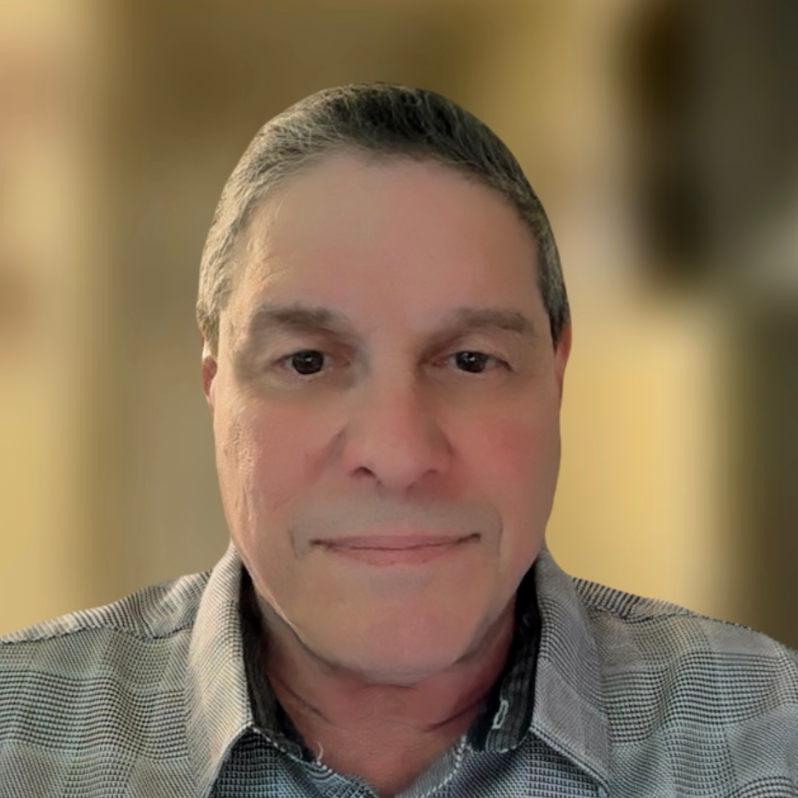
Robert Kaplan serves as an expert witness on behalf of employers, government agencies, and individuals in criminal and civil matters. He is a Certified Forensic Examiner for the State of Oregon and has been appointed to be a defense expert in capital murder cases in federal and state courts. His reports have been cited by the U.S. Supreme Court and a governor of Indiana. In his private practice, Dr. Kaplan specializes in psychological assessment, depression, and traumatic stress reactions for airline disaster survivors, crime and accident victims, combat veterans, and emergency responders.
Blue Ocean: Your career spans forensic psychology, consulting, and expert witness work. What inspired you to pursue this multifaceted path?
Robert Kaplan: It began during my teen years. I enjoyed talking to people, and they thought I was a good listener and appreciated my advice. So, I thought I’d like to become a psychiatrist when I grew up to help people deal with their problems. In my senior year of high school, I took a post-secondary education course at Rutgers University: Intro to Psychology. The professor explained that the only grade in the class would come from a single, tough final exam. But then he said that if we wrote enough papers throughout the semester, we could earn a percentage of credit toward that final exam—potentially securing an A.
I spent hours in the library reading psychology journals and was fascinated by how the human mind worked. It was then that I developed a love for psychology.
The more I explored, the more I wanted to learn. I found myself constantly wondering: What makes the human mind work? How do we see things? How do we hear things? How do we solve problems? I decided to pursue a pre-med path and become a psychiatrist. However, when I took organic chemistry, I barely passed the class. Studying molecules just wasn’t something I was passionate about. What I truly wanted to do—and was passionate about—was helping people. And I thought a good way to do that would be to become a psychologist.
I applied to graduate schools in psychology and was accepted into a clinical program. During that time, my interest shifted toward understanding the nature of psychological trauma. I met a colleague named John Wilson, who coined the diagnosis and the term “post-traumatic stress disorder.” We spent a lot of time working together, handling various types of cases and studying different individuals through a range of research efforts. This helped me develop a comprehensive understanding of psychological trauma.
As my knowledge deepened, I gained a reputation as an expert in the field. Many of my patients were trauma victims, and I began receiving requests from attorneys to write reports for their clients—describing symptoms and outlining necessary treatment. Some of these lawyers liked the reports and asked me to testify in court. Before I knew it, I had testified in over 150 cases across various jurisdictions and had become a well-known expert witness in psychological trauma.
Blue Ocean: What does a typical day look like for you, balancing consulting, expert witness work, and advisory roles?
Robert Kaplan: I start my day by reviewing emails. I receive a lot of them—some are requests for information, others are requests for services—so I sort through those first.
I also receive a large volume of records, so I devote several hours a day to going through them, summarizing them, and understanding the case.
Once or twice a week, I’ll actually have the opportunity to interview someone. That’s the fun part of what I do—getting the information, learning about someone, what happened to them, and what they need.
The rest of my time is spent writing reports, drafting letters, talking to people on the phone about what I’ve seen in cases, and consulting with attorneys. By that point, it’s time for supper, and I turn off the computer and relax.
Blue Ocean: Is there a case that particularly marked you?
Robert Kaplan: There’s always one case I think about. Criminal cases are much more fascinating than civil ones, and most of the criminal cases I’ve been involved in were murder cases. I’ve seen things they haven’t even made movies about yet. But there was one that really struck me.
In this case, a man who had already been sentenced to death wanted to waive his appeal of the death penalty. He was a psychotic killer—he had murdered his parents with a shotgun when he was 19 years old. But on a technicality, he was acquitted of that crime. At age 24, he went on to kill his sister, her husband, and two of their guests. He left their 9-year-old daughter alive in the bedroom upstairs because he said he liked her. The reason he killed everyone was because he thought they were talking about him. He was just very, very paranoid.
He was held in the Supermax prison in Indiana. It’s a maximum-security unit inside another maximum-security prison, which is itself inside a two-mile square prison complex. As I entered, I was searched at every level—I remember thinking, this is like the rings of hell. Supermax is where they keep the most dangerous criminals, and the place looked like a bunker. It had no windows, everything was painted beige and gray, and the guards were the biggest men I’ve ever seen in my life. When they brought this guy in, he was handcuffed at the waist and had chains on his legs—he looked like Hannibal Lecter, minus the spit mask. And he was as big as the guards and had the coldest eyes I ever saw.
Usually, I’m fine sitting in the same cell with someone because they know I’m there to assist in their defense. But this guy scared me. He could’ve grabbed my neck, and I’d be done in a second. So, they put a table and chair outside his cell. I set my laptop on it, and he started pacing back and forth like a tiger in a cage. He looked at the bare bulb in his cell, said it was kind of bright, and unscrewed it with his bare hands. It started getting a little dark, and the guards asked me if I wanted to let him do that. I said, “He’s just trying to impress me. Let him have some fun.” It helped him relax.
Then he asked me why I was there. I told him people wanted to know why he wanted to waive his appeal and be put to death rather than go through the legal process. He said, “It’s my right.” I agreed it was but explained that people wanted to know if he was mentally competent. He insisted he wasn’t crazy. He then explained that the guards had an ultrasound machine they turned on every night to rack his body with pain, which was why he’d rather die than be tortured like that. But that was a delusion—an ultrasound machine can’t do anything like that. So, he was delusional, and that was the reason he wanted to waive his appeal.
Here’s where it gets interesting. In Indiana, there are two competing standards for waiving your appeal. The federal standard requires a rational reason to waive the appeal. If he had told me, “I’d rather die than spend the rest of my life rotting in prison,” that would’ve been considered rational. But the ultrasound machine? Not rational. The Indiana state standard, however, is different. The state only requires that you be competent to stand trial—that you understand the roles of the judge, attorney, and prosecutor and the adversarial nature of the system.
We went to the hearing in Fort Wayne, Indiana, in one of the most beautiful courtrooms I’ve ever seen. I asked the lawyer how Fort Wayne could afford such a courthouse, and he said it was because insurance companies were based there—the local taxes covered it. The judge presiding over the case was the same one who had overseen the trial where the defendant was acquitted of killing two people, so she was extremely angry at him.
When it was my turn to testify, I explained my qualifications, my opinion, and my conclusion: he was delusional. The whole time I was testifying, the judge sat there with her arms crossed—a bad sign. If a judge is interested, they usually take notes. Then, the prosecutor asked if the defendant understood who the prosecutor, judge, and lawyer were and what their roles were. I said yes. At that point, the judge started taking furious notes.
They also had a forensic neuropsychologist and a forensic psychiatrist evaluate him, and we all came to the same conclusion: the defendant was mentally ill. There was no rational reason to waive his appeal.
Usually, when you’re done testifying, you’re supposed to leave the courtroom so you don’t appear interested in the outcome of the case. But I broke that rule—I had to see how this turned out and sat low at the back of the courtroom.
The testimony went exactly the same for the forensic psychiatrist and neuropsychologist. The judge sat with crossed arms during their direct testimony and took furious notes when the prosecutor asked his questions. At the end of the proceedings, the judge looked the defendant in the eye and asked, “Do you want to die?” He said yes. And she simply replied, “Well, you look sane to me,” completely ignoring his delusion.
That day, I learned a lot about the death penalty. In theory, it’s a good idea. But in practice, it’s often a butchered process influenced by politics. And that judge was angry. She knew full well that her decision would be reversed in federal court but, as an elected judge, she could go to her constituents and tell them that she tried to sentence him to death but the “Feds” wouldn’t let her. For those who advocate the death penalty, it’s very difficult to carry it out justly. In many jurisdictions, there isn’t even a death penalty. Over time, I came to feel OK with the death penalty only if the person had adequate resources to defend themselves and they were a predator who enjoyed killing.
Blue Ocean: What unique perspective or service do you offer your clients that sets you apart in your field?
Robert Kaplan: I’m known for being very thorough in everything I do—almost to a fault, and sometimes actually to a fault. When it comes to reviewing records, I want to see everything. I take the time to read and summarize it all. That’s one thing I believe sets me apart.
In addition to that, I’m very good at handling cross-examinations. I actually feel more comfortable when I’m being cross-examined than when I’m giving direct testimony.
Of course, being able to communicate effectively is a crucial part of this work. You need strong presentation skills. You have to know how to connect with people—the jury, the judge, and everyone else in the courtroom. My wife used to be a TV reporter, so she taught me a lot about how to be a good presenter and how to answer questions in 30-second sound bites. I learned a lot from her about handling questions, and I just don’t get rattled.
In fact, I actually think it’s a good sign when attorneys start yelling at me—it usually means they’re frustrated with my answers. So I just stay calm, cool, and focused. I try to be thorough, and I answer in a way that’s direct, clear, and honest.
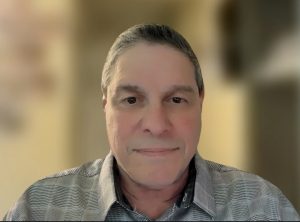
Blue Ocean: What would you say is the most challenging aspect of your work?
Robert Kaplan: I don’t know if I’d describe it as a challenge, but I see a lot of sadness in the lives of the people I work with. Particularly in the criminal world, about 90% of the murderers I see are victims of sexual or physical abuse, neglect, or other trauma. They grow up unable to hold jobs or cope with stress, so they turn to crime to support themselves or do drugs as a way to cope.
In the course of committing crimes, they might attempt an armed robbery, but because they have poor planning skills, they can’t even do that effectively—and they end up killing someone. The other 10% are what I call the predators. These are individuals who actually enjoy killing—almost as if they’re addicted to the feeling.
I have two personal rules before I feel okay with the death penalty. First, the person has to be a predator. Second, they must have had all the means available to defend themselves. In America, I believe people with money receive better justice than those without. But if both of those criteria are met, then I don’t really dwell on the outcome.
However, when someone lacks the resources to defend themselves or is essentially a victim of their circumstances, it’s very difficult to see them sentenced to death. That’s the part that weighs on me the most.
Blue Ocean: If you could share one piece of advice with your younger self starting in this profession, what would it be?
Robert Kaplan: I should have studied medicine. I should have gone to medical school because I actually enjoy learning about how the body works. I’ve learned so much about how the mind works, but I wish I knew more about the body. For example, in personal injury cases, I’d have much greater credibility when discussing whether an injury is severe or not.
If I were a psychiatrist, I could work more directly within the medical field. So, if I were younger, I would definitely study a lot more medicine.
Blue Ocean: As an expert in traumatic stress, you’ve navigated emotionally intense fields. How do you prioritize your mental well-being? Are there any passions or hobbies you pursue?
Robert Kaplan: There’s something called vicarious trauma, where just hearing all the horrible stories people have lived through can be emotionally draining and deeply saddening. It’s important to allow yourself to feel those emotions—because if you try to suppress them, they tend to come out in other, less healthy ways. You might lash out, lose your temper, or struggle with emotional control.
So I think it’s essential, especially in this line of work, to allow yourself to feel the pain you witness in others—but not to the point where it becomes overwhelming or debilitating. You have to stay close enough to empathize with someone’s pain but distant enough to remain objective and rely on sound clinical judgment. That’s the key to managing trauma work: understanding the experiences of others without becoming consumed by them.
The second thing is you need people. I remember spending time with John Wilson—just going out for a drink and talking through some of the awful situations we’d encountered. It helped us decompress. Having someone you can confide in makes a huge difference. Social support is incredibly important. My wife is always interested in the cases I work on, and sometimes, I talk with her about them. I trust her completely to be discrete and, after 48 years of marriage, she’s never broken that trust. I also have professional friends I can share things with when needed.
Ultimately, it’s about maintaining that proper balance—being emotionally available but still grounded in professionalism.
As for passions, I like to exercise, though the type of activity changes over time. When I was younger, I enjoyed martial arts—especially Krav Maga—but my shoulder can’t handle that anymore. These days, I go for walks and hikes. There are some beautiful trails in the Pacific Northwest, and my wife and I love exploring them. We also enjoy traveling. There’s so much beauty to see—both locally, across the country, and in Europe.
Blue Ocean: Do you have a favorite quote or philosophy that has guided you personally or professionally?
Robert Kaplan: I strongly believe in transparency in everything you do. It’s incredibly important to be honest in what you say and what you do and to maintain a highly ethical approach to your work. In this field, your word is everything—and if people can’t trust your word, you’re not going to be an effective expert witness in any area.
That’s why I believe in being upfront about everything. If there are weaknesses or issues in a case, it’s important to communicate them. That’s what leads to problem-solving. On the other hand, if you try to hide something or keep it out of the record and it gets discovered, it only creates more problems for you.
It reminds me of the saying: “The cover-up is worse than the crime.” I think that’s especially true in expert witness work. It’s when people try to cover things up that they really get into trouble. I’ve seen that happen more than once, and I’ve made sure it never happens to me.
That’s my guiding philosophy: don’t cover up—deal with the problems.
Conclusion
For Dr. Kaplan, transparency is a core value, and he is thorough in every aspect of his work. His dedication to each case and commitment to understanding the human mind position him as a true leader in the field of expert witness testimony.
Do you have a personal or professional story that can inspire other people into becoming the best version of themselves?
You are welcome to share your journey with our audience.

